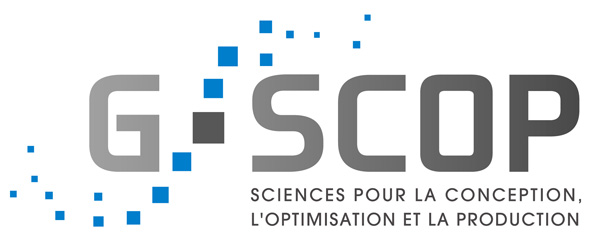Reconciling Lean Product Development and Innovation : A case study in the semi-conductor industry
Réconcilier Lean Product Development et Innovation : Une étude de cas dans l’industrie des semi-conducteurs
Résumé
This thesis explores the integration of Lean Product Development (LPD) within the research and development (R&D) department of STMicroelectronics, a global semiconductor giant. Rooted in an action-research approach, it explores how LPD can be adapted to stimulate innovation in R&D, revealing the nuances needed to harmonize the specificities of this department with Lean principles.STMicroelectronics, a key player in the semiconductor sector, was chosen as the study site. Its dynamism and the constant need to innovate in order to remain competitive in a demanding market made it an ideal setting for experimenting with LPD in R&D.The methodological approach was resolutely immersive, adopting the posture of researcher-actor within STMicroelectronics' continuous technological R&D improvement program. This immersion enabled authentic participant observation, offering a unique perspective for collecting data and experimenting with LPD principles directly in the field.The results offered crucial clues about the links between LPD and R&D innovation. The central question posed by this thesis was whether LPD, as an approach, fosters innovation within R&D, particularly in the semiconductor field.The answer that emerged was affirmative, but conditional. The adaptability of the LPD to each specific context appeared to be a sine qua non condition. The absence of a universal framework was recognized not only as an indisputable reality, but also as a strength, giving way to the notion of configuration, better able to apprehend the complexity and variability inherent in each organizational environment.By placing people at the heart of its approach, the LPD was identified as a potential catalyst for innovation. The analysis highlighted the critical role of human behaviors, such as creativity and energy/motivation, in this process. However, these behaviors cannot be understood in isolation from a company's operating system (OS).The study revealed that the OS, comprising all the tools, processes, mechanisms and cadenced activities of an organization, plays a decisive role in creating an environment conducive to innovative behavior. What's more, this organizational ecosystem can act as a lever or a brake, influencing the manifestation of human behaviors conducive to innovation.The successful integration of LPD to stimulate innovation therefore depends on the synergy between the specific LPD configuration adopted, the recognition of the central role of people, and the thoughtful design of the company's OS. These interconnected elements create a favorable ecosystem, where LPD and human behaviors collaborate harmoniously to promote innovation.
Cette thèse explore l'intégration du Lean Product Development (LPD) au sein du département de recherche et développement (R&D) de STMicroelectronics, un géant mondial des semi-conducteurs. Ancrée dans une approche de recherche-action, elle explore la manière dont le LPD peut être adapté pour stimuler l'innovation en R&D, en révélant les nuances nécessaires pour harmoniser les spécificités de ce département avec les principes du Lean.STMicroelectronics, acteur clé dans le secteur des semi-conducteurs, a été choisi comme terrain d'étude. Son dynamisme et l'impératif constant d'innovation pour rester compétitif dans un marché exigeant en ont fait un cadre propice à l'expérimentation du LPD en R&D.L'approche méthodologique a été résolument immersive, adoptant la posture de chercheur-acteur au sein du programme d’amélioration continue de la R&D technologique de STMicroelectronics. Cette immersion a permis une observation participante authentique, offrant une perspective unique pour collecter des données et expérimenter les principes du LPD directement sur le terrain.Les résultats ont offert des indices cruciaux sur les liens entre le LPD et l’innovation en R&D. La question centrale posée par cette thèse était de savoir si le LPD, en tant que démarche, favorise l'innovation au sein des R&D notamment dans le domaine des semi-conducteurs.La réponse qui a émergé est affirmative, mais conditionnelle. L'adaptabilité du LPD à chaque contexte spécifique est apparue comme une condition sine qua non. L'absence d'un cadre universel a été reconnue non seulement comme une réalité incontestable, mais également comme une force, laissant place à la notion de configuration, mieux apte à appréhender la complexité et la variabilité inhérentes à chaque environnement organisationnel.Le LPD, en plaçant l'humain au cœur de sa démarche, a été identifié comme un catalyseur potentiel pour l'innovation. L'analyse a souligné le rôle critique des comportements humains, tels que la créativité et l’energie/motivation, dans ce processus. Cependant, ces comportements ne peuvent être compris de manière isolée de l’operating system (OS) des entreprises.L'étude a révélé que l'OS, comprenant l’ensemble des outils, des processus, des mécanismes et des activités cadencées d’une organisation, joue un rôle déterminant dans la création d'un environnement propice aux comportements innovants. Plus encore, cet écosystème organisationnel peut agir en tant que levier ou frein, influençant la manifestation de comportements humains favorables à l'innovation.La réussite de l'intégration du LPD pour stimuler l'innovation dépend donc de la synergie entre la configuration spécifique du LPD adoptée, la reconnaissance du rôle central de l'humain, et la conception réfléchie de l'OS de l'entreprise. Ces éléments interconnectés créent un écosystème favorable, où le LPD et les comportements humains collaborent harmonieusement pour promouvoir l'innovation.
| Origine | Version validée par le jury (STAR) |
|---|
